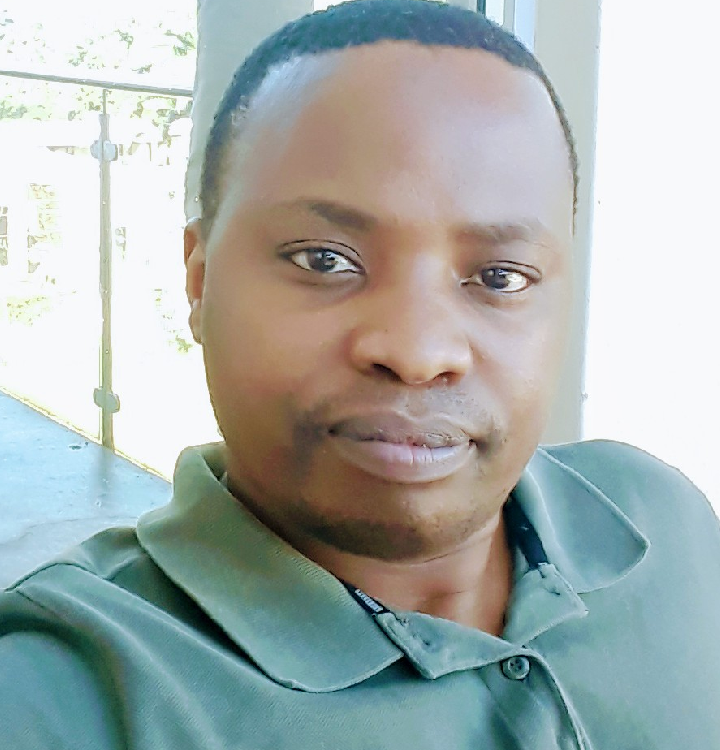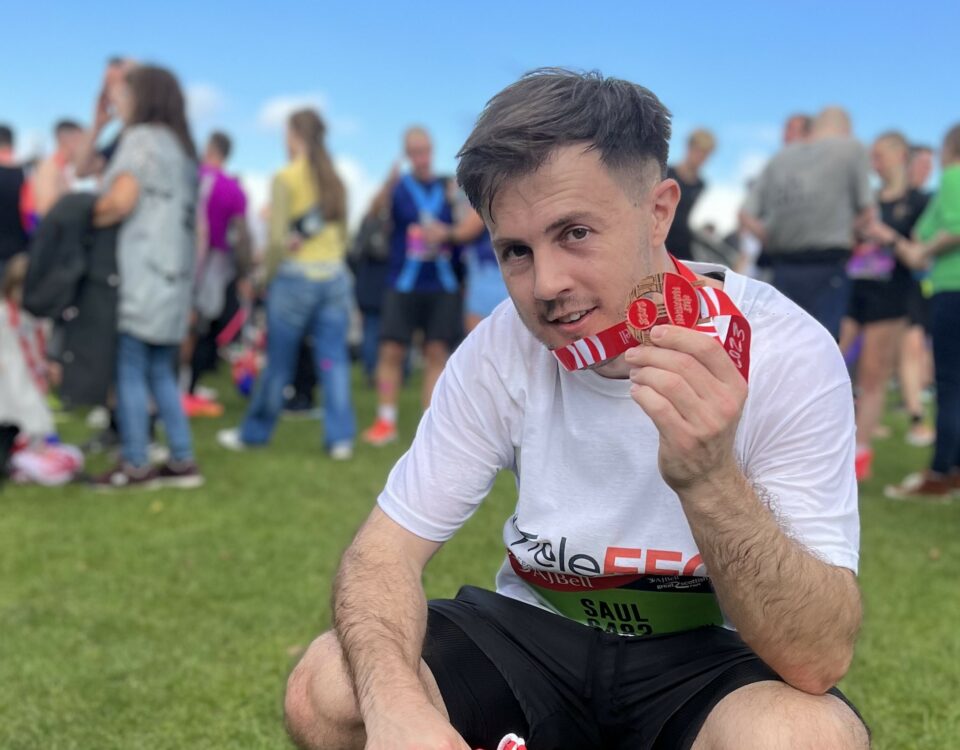This website uses cookies so that we can provide you with the best user experience possible. Cookie information is stored in your browser and performs functions such as recognising you when you return to our website and helping our team to understand which sections of the website you find most interesting and useful.
The feasibility of a philanthropic system as a global solution to help reduce the epilepsy treatment gap in developing countries
The feasibility of a philanthropic system as a global solution to help reduce the epilepsy treatment gap in developing countries
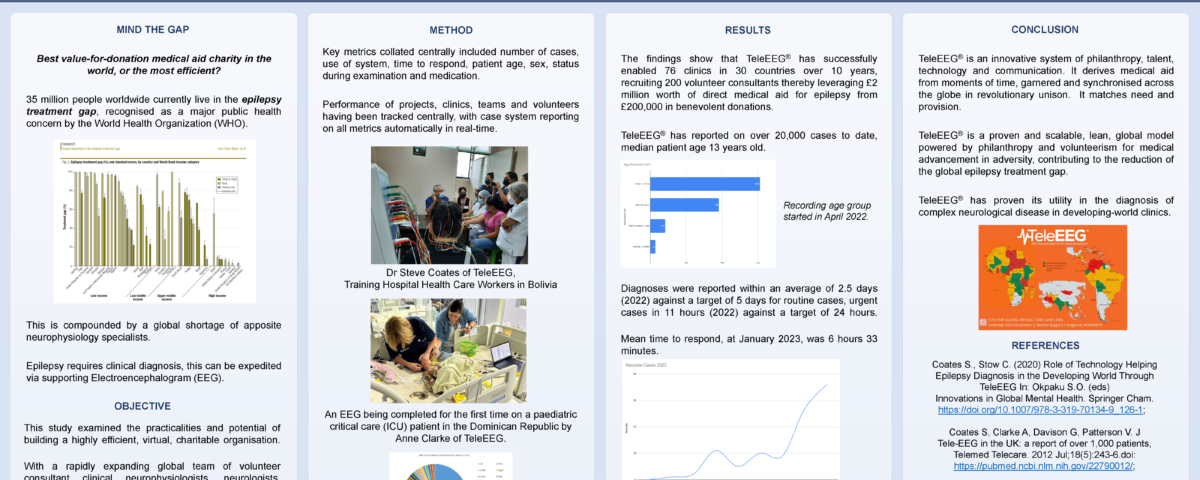
TeleEEG is delighted to report that our research was selected for poster presentation at the 35th International Epilepsy Congress #IEC2023 which took place September 2023 in Dublin.
ABSTRACT
The feasibility of a philanthropic system as a global solution to help reduce the epilepsy treatment gap in developing countries
MIND THE GAP
Best value-for-donation medical aid charity in the world, or the most efficient?
35 million people worldwide currently live in the epilepsy treatment gap, recognised as a major public health concern by the World Health Organization (WHO).
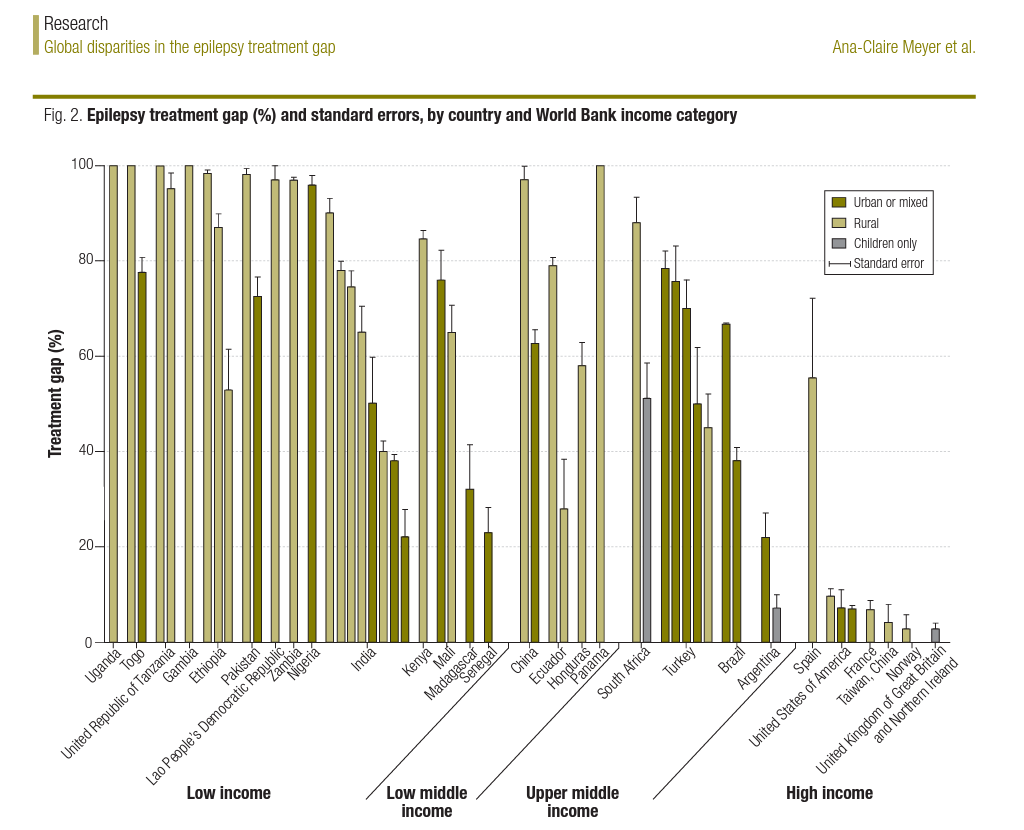
This is compounded by a global shortage of apposite neurophysiology specialists. Epilepsy requires clinical diagnosis, this can be expedited via supporting Electroencephalogram (EEG).
OBJECTIVE
This study examined the practicalities and potential of building a highly efficient, virtual, charitable organisation. With a rapidly expanding global team of volunteer consultant clinical neurophysiologists, neurologists, paediatricians and technologists. Providing peer-to-peer advisory diagnostic services free of charge 24/7 to hospitals, clinics and patients-in-need in developing countries.
METHOD
Key metrics collated centrally included number of cases, use of system, time to respond, patient age, sex, status during examination and medication. Performance of projects, clinics, teams and volunteers having been tracked centrally, with case system reporting on all metrics automatically in real-time.
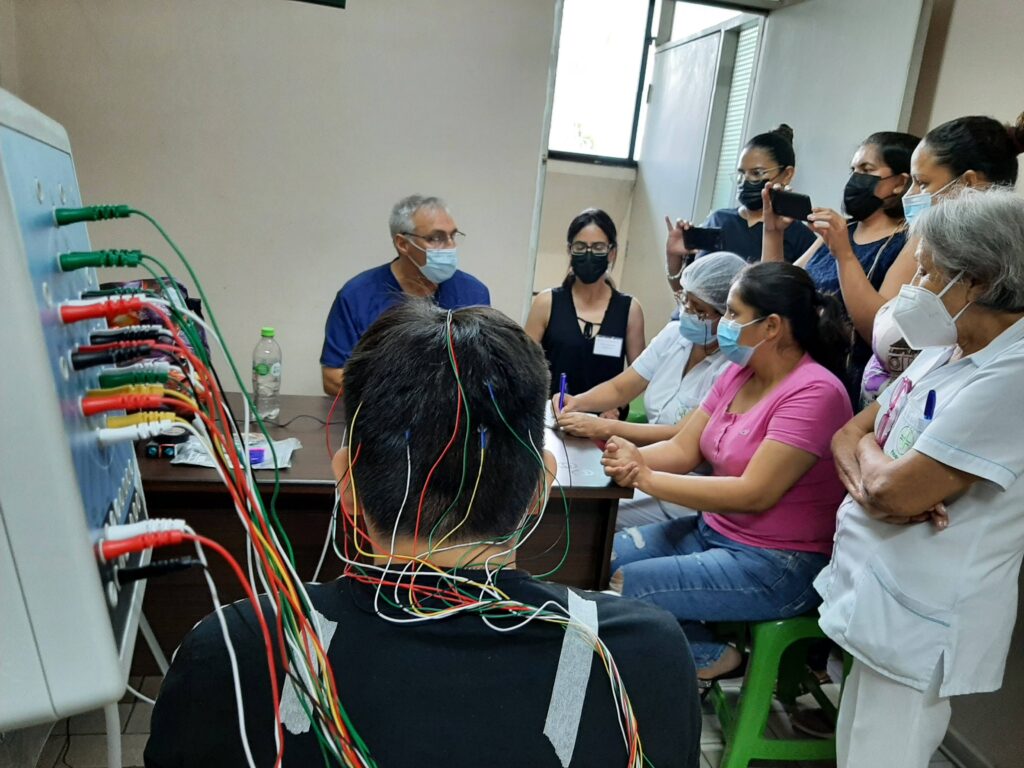
Photo: Dr Steve Coates of TeleEEG, Training Hospital Health Care Workers in Bolivia
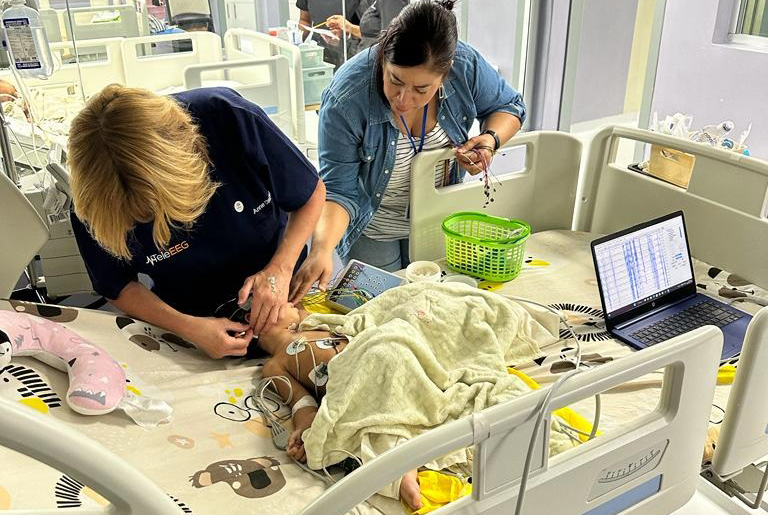
Photo: An EEG being completed for the first time on a paediatric critical care (ICU) patient in the Dominican Republic by Anne Clarke of TeleEEG.
RESULTS
The findings show that TeleEEG® has successfully enabled 76 clinics in 30 countries over 10 years, recruiting 200 volunteer consultants thereby leveraging £2million worth of direct medical aid for epilepsy from £200,000 in benevolent donations.
TeleEEG® has reported on over 20,000 cases to date, median patient age 13 years old. Diagnoses were reported within an average of 2.5 days (2022) against a target of 5 days for routine cases, urgent
cases in 11 hours (2022) against a target of 24 hours. Mean time to respond, at January 2023, was 6 hours 33 minutes. There was a notable increase in presentation of neonatal patients in 2022, recruitment of volunteers with this specialism was successfully prioritised and accomplished.
CONCLUSION
TeleEEG® is an innovative system of philanthropy, talent, technology and communication. It derives medical aid from moments of time, garnered and synchronised across the globe in revolutionary unison. It matches need and provision.
TeleEEG® is a proven and scalable, lean, global model powered by philanthropy and volunteerism for medical advancement in adversity, contributing to the reduction of the global epilepsy treatment gap.
TeleEEG® has proven its utility in the diagnosis of complex neurological disease in developing-world clinics.
REFERENCES
Coates S., Stow C. (2020) Role of Technology Helping Epilepsy Diagnosis in the Developing World Through TeleEEG In: Okpaku S.O. (eds) Innovations in Global Mental Health. Springer Cham.
https://doi.org/10.1007/978-3-319-70134-9_126-1;
Coates S, Clarke A, Davison G, Patterson V. J Tele-EEG in the UK: a report of over 1,000 patients,
Telemed Telecare. 2012 Jul;18(5):243-6.doi:
https://pubmed.ncbi.nlm.nih.gov/22790012/;
Bulletin World Health Organisation 2010;88:260–266
https://apps.who.int/iris/handle/10665/270652
CONTACT
www.teleeeg.org
DOWNLOAD POSTER
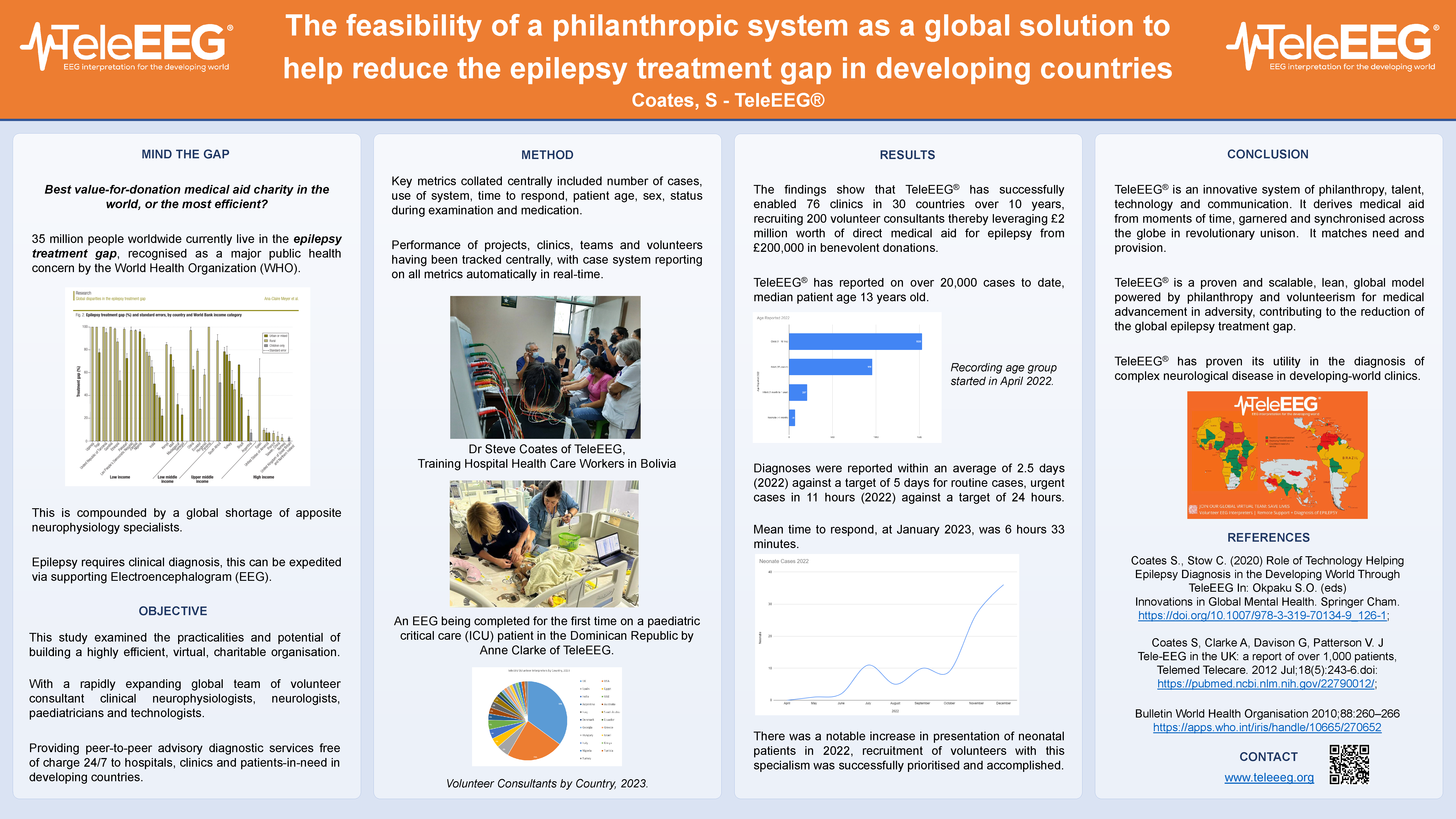
Visit www.teleeeg.org for more information, to volunteer, donate equipment or become a supporter.


